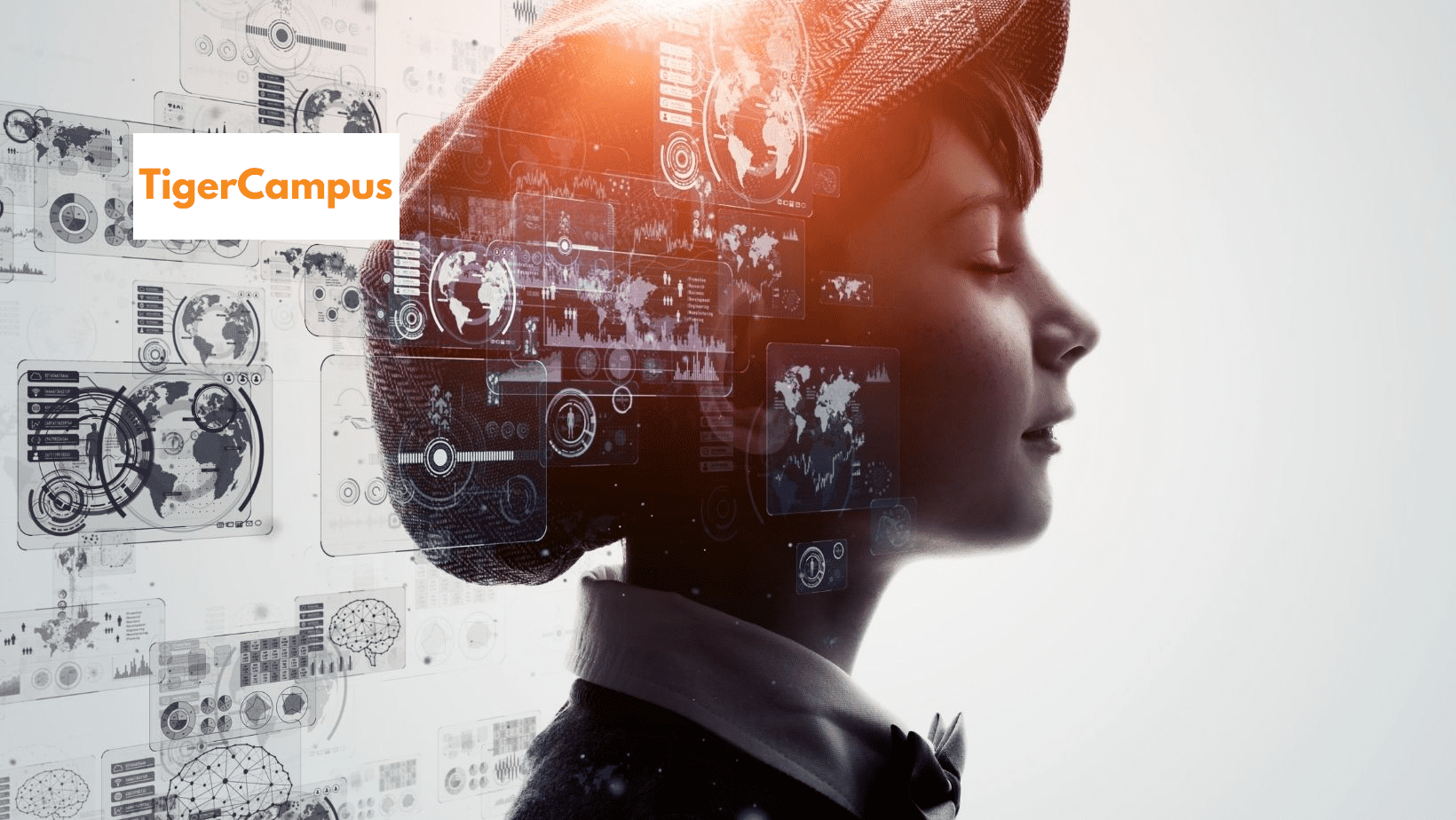โลกกำลังเข้าสู่ยุคของ เครื่องจักรอัจฉริยะ. จาก ยานพาหนะอิสระ ในด้านปัญญาประดิษฐ์ อัตราการสร้างสรรค์นวัตกรรม AI กำลังเติบโตแบบก้าวกระโดด
หากเราสามารถสอนให้เครื่องจักรเรียนรู้ได้เหมือนที่เราทำ เราก็สามารถสร้างระบบการศึกษาที่มีประสิทธิภาพมากกว่าระบบปัจจุบันได้อย่างไม่สิ้นสุด เราเชื่อว่าสิ่งนี้จะนำไปสู่โลกที่ทุกคนได้รับการศึกษาที่มีคุณภาพซึ่งหาไม่ได้จากที่อื่น
AI เป็นเครื่องมือ และเครื่องมือสามารถสร้างสิ่งต่างๆ ได้มากมาย ฉันไม่ใช่คนเดียวที่คิดเช่นนั้น ดังที่บทความสองสามบทความถัดไปในซีรีส์นี้จะแสดงให้เห็น มาเจาะลึก 6 วิธีที่ AI กำลังเปลี่ยนแปลงการศึกษาในปัจจุบันกัน
1. AI จะทำให้ห้องเรียนเป็นระบบอัตโนมัติ
เรากำลังเห็นการเกิดขึ้นของเทรนด์ใหม่ในด้านการศึกษาที่จะมาเปลี่ยนแปลงชีวิตนักเรียน: AI จะทำให้ห้องเรียนเป็นระบบอัตโนมัติ ปัจจุบันมีนักเรียนในสหรัฐอเมริกามากกว่า 40 ล้านคน และคาดว่าตัวเลขดังกล่าวจะเพิ่มขึ้นเป็นสองเท่าภายในทศวรรษหน้า ภายในปี 2030 เด็ก 1 ใน 4 คนที่เข้าเรียนในโรงเรียนจะเป็นเด็กดิจิทัล นักเรียนจะโต้ตอบกับเทคโนโลยีในรูปแบบที่ไม่เคยเป็นไปได้ และครูจะต้องปรับตัวให้เข้ากับการเปลี่ยนแปลงนี้เพื่อให้ทันต่อสถานการณ์และทันสมัยอยู่เสมอ
2. AI จะช่วยให้นักเรียนค้นหาคำตอบ
การค้นหาใน Google จะแสดงคำตอบ แต่ก็อาจไม่ใช่คำตอบที่ดีที่สุดเสมอไป การค้นหาใน Wikipedia จะแสดงข้อมูลที่คุณต้องการ แต่ไม่มีการรับประกันว่าข้อมูลนั้นถูกต้อง และหากคุณค้นหาใน YouTube คุณอาจพบกับข้อมูลที่แตกต่างไปจากเดิมโดยสิ้นเชิง ลองนึกภาพว่าต้องเรียนให้จบมหาวิทยาลัยโดยที่ไม่มีข้อมูลทั้งหมดที่มีอยู่ ด้วย AI คุณสามารถค้นหาคำตอบที่คุณต้องการเพื่อผ่านหลักสูตร เขียนรายงาน และทำโปรเจ็กต์ต่างๆ ได้อย่างง่ายดาย
3. AI จะทำให้เรื่องนี้ชัดเจน
ปัญญาประดิษฐ์มาถึงแล้ว หุ่นยนต์ที่จะช่วยคุณก็เช่นกัน ไม่มีทางอื่นใดอีกแล้ว เทคโนโลยีปัญญาประดิษฐ์ก้าวหน้ามาไกล และจะพัฒนาต่อไปอย่างต่อเนื่อง เราใช้เทคโนโลยีนี้อยู่ทุกวันอยู่แล้ว แต่เราไม่รู้เสมอไปว่ามันทำงานอย่างไร หรือมันจะเปลี่ยนแปลงชีวิตของเราให้ดีขึ้นได้อย่างไร แล้วปัญญาประดิษฐ์ทำอะไรกันแน่? หากคุณสละเวลาศึกษาเทคโนโลยีนี้ คุณจะพบว่าเป็นเรื่องง่ายมาก
4. AI จะช่วยปรับปรุงทักษะการเขียน
เมื่อเครื่องมือ AI ได้รับการพัฒนา คุณภาพการเขียนก็จะเพิ่มขึ้นอย่างต่อเนื่อง จำนวนคำโดยเฉลี่ยลดลงอย่างมากในช่วงทศวรรษที่ผ่านมา อัลกอริทึมที่สามารถจดจำและดึงประเด็นสำคัญจากข้อความหรือบทความจะแม่นยำและมีประสิทธิภาพมากขึ้น นั่นหมายความว่านักเขียนจะต้องกระชับ มีประสิทธิภาพ และเน้นไปที่การนำเสนอข้อมูลที่ถูกต้องให้กับบุคคลที่ถูกต้องในเวลาที่ถูกต้องมากขึ้น
5. AI จะมอบหลักสูตรได้ทุกที่ทุกเวลา
เรากำลังมองหาวิธีที่จะทำให้เกือบทุกด้านของชีวิตเราเป็นอัตโนมัติ แม้ว่ารถยนต์ขับเคลื่อนอัตโนมัติจะยังห่างไกล แต่เราก็กำลังเผชิญกับการเติบโตของการเรียนรู้ของเครื่องจักร ซึ่งสัญญาว่าจะเปลี่ยนแปลงทุกอย่างตั้งแต่การดูแลสุขภาพไปจนถึงการศึกษา ปัจจุบัน การฝึกอบรมส่วนใหญ่เกิดขึ้นในมหาวิทยาลัย แต่ AI สามารถทำให้ทำงานได้ทุกที่ ซึ่งอาจแทนที่ห้องเรียนทั้งหมดด้วยซ้ำ
6. AI จะเพิ่มการมีส่วนร่วมของนักเรียน
มีสองเหตุผลหลักที่ AI สามารถช่วยส่งเสริมการมีส่วนร่วมของนักเรียนได้:
1. AI และการวิเคราะห์ช่วยให้ครูติดตามความคืบหน้าและระบุพื้นที่ปัญหาที่ต้องได้รับความสนใจ
2. AI สามารถให้โอกาสแก่นักเรียนในการเป็นเจ้าของการศึกษาของตนเอง
ตัวอย่างเช่น หากคุณกำลังสอนนักเรียนให้อ่านและเขียน และคุณมอบหมายให้เขียนเรียงความเป็นการบ้าน คุณสามารถตั้งโปรแกรมระบบเพื่อให้รางวัลนักเรียนด้วยคะแนนสำหรับการส่งเรียงความที่ปฏิบัติตามคำสั่งเฉพาะ หากนักเรียนของคุณทราบข้อกำหนดและเห็นคะแนนเพิ่มขึ้น พวกเขาอาจเริ่มเขียนเรียงความสำหรับตัวเองแทนที่จะถูกบอกเพียงว่าต้องทำอะไร
โดยสรุปแล้ว AI ได้ก้าวหน้าอย่างมากในช่วงสองสามปีที่ผ่านมาในด้านการศึกษา ด้วยเครื่องมือและข้อมูลที่เหมาะสม AI อาจกลายเป็นผู้เปลี่ยนแปลงครั้งใหญ่ครั้งต่อไปในด้านการศึกษา ปัจจุบัน AI สามารถบอกได้ว่านักเรียนให้ความสนใจเมื่อใด และเสนอคำแนะนำที่ปรับแต่งได้เพื่อช่วยให้นักเรียนได้คะแนนสูงขึ้น นอกจากนี้ AI ยังสามารถทำนายได้ว่าครูคนใดจะทำผลงานได้ดีกว่าครูคนอื่น หากคุณต้องการก้าวล้ำหน้าผู้อื่น ต่อไปนี้คือ 6 วิธีที่ AI กำลังเปลี่ยนแปลงการศึกษา และคุณสามารถใช้ประโยชน์จากสิ่งนี้ได้








